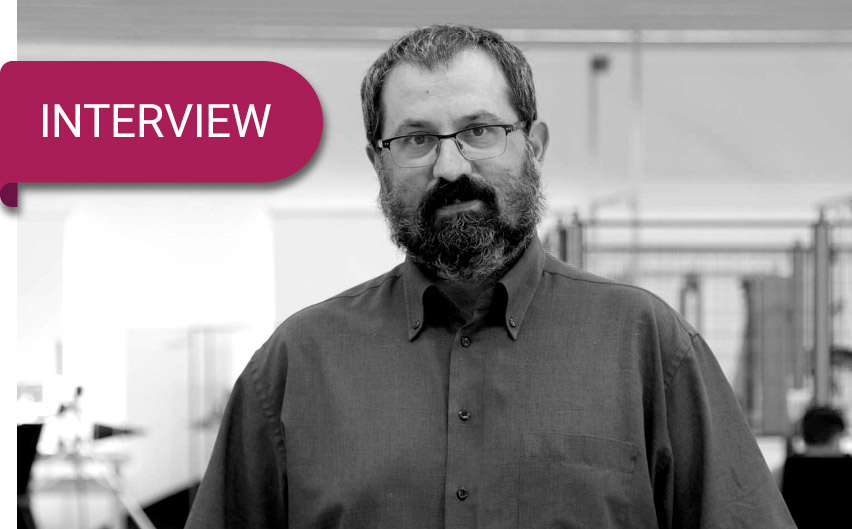News & Events
AssAssiNN: the project that uses artificial intelligence to reduce risks in the aeronautical industry
AssAssiNN: the project that uses artificial intelligence to reduce risks in the aeronautical industry

09 | 02 | 2023
A successful end to the AssAssiNN project headed by Ceit that seeks to optimise manual aircraft assembly operations via the use of emerging technologies.
The aeronautical industry is one of the most important sectors in the world and is constantly evolving. Emerging technologies such as artificial intelligence (AI), mixed and augmented reality and collaborative robotics have proven their effectiveness and can help the aeronautical industry to innovate in assembly and quality control operations, thus eliminating the risk of faults caused by manual operations.
The AssAssiNN project, coordinated by the Ceit Technology Centre, has developed a robust multi-functional assembly cell to support manual operations such as the installation of the kind of systems and equipment common to fuselage. This solution seeks to improve structural integration, reduce total cost and structural weight, increase multi-functional materials, restrict environmental impact and prolong the lifespan of aircraft.
Work has been undertaken on the AssAssiNN project to optimise manual aircraft assembly operations via the use of emerging technologies. Specifically, a robust multi-functional assembly cell has been developed in the course of the project to guide the operator using mixed and augmented reality during assembly and inspection processes. At the same time, the worker will be assisted by a Cobot while a neuron network-based artificial intelligence algorithm checks the quality of the results.
The project forms part of the EU’s HORIZON 2020 Research and Innovation Programme, specifically funded by the 4 Clean Sky 2 programme. AssAssiNN has been funded by a total budget amounting to over a million euros, and the. following have taken part together with Ceit, the project coordinator: the SUPSI Swiss research centre and the Italian aeronautical manufacturing and engineering company, HB Technology.
Aiert Amundarain, a researcher from the ‘Intelligent Systems for Industry 4.0’ group at Ceit, provides us with the keys to this initiative that will help to reduce risks in the aeronautical industry.
What has been the need or reason for setting the project in motion?
Ceit is very interested in developing technologies that will enable industrial processes to be optimised. ASSASSINN has enabled us to make advances in these technologies by developing systems to assist the operator in assembly operations, monitoring and inspecting processes with a view to reducing the number of errors and automating some stages in the process.
What does it mean for Ceit to head the AssAssiNN project?
Heading a European project represents an opportunity for us at Ceit to demonstrate our excellence in terms of technological research and development internationally, and to collaborate with other leaders in the industry. Furthermore, it enables us to broaden our scope and access resources and know-how, which in turn strengthens our capacity to deal with technological challenges. In short, it gives us the opportunity to take advantage of expertise from other leading companies in their fields and to achieve joint objectives on both a European and global level.
How does Ceit take part / what is its role in the project? What results has Ceit obtained as a result of this project?
CEIT has been at the helm of the AssAssiNN project, in which advances have been made in technologies such as mixed and augmented reality, the use of collaborative robots, monitoring and inspection systems and the development of artificial intelligence algorithms. This development results in the provision of useful tools for the purpose of optimising different types of industrial processes.
The tools were validated in four cases of use in which different aircraft assembly operations were taken into consideration. The diversity required to demonstrate the flexibility of the tools selected was sought in selecting these cases.
How do you think this may affect production processes in the aeronautical sector?
Aeronautical component assembly is a complex process that requires a large number of manual interactions and tests to ensure the safety and quality of the end product. The tools developed enable these processes to be improved in several ways, such as automating different stages in the process, reducing errors via quality control testing, assisting the operator throughout the process, and ensuring traceability of the assembly process.
How do you think this technology can have a bearing on the business fabric or on society as a whole?
The technologies being developed form part of Industry 4.0. Within the business fabric, it is hoped that Industry 4.0 will increase efficiency and productivity, reduce costs and improve flexibility in terms of production. Furthermore, it may create new business opportunities in areas such as low-volume and highly complex manufacturing, and product personalisation.